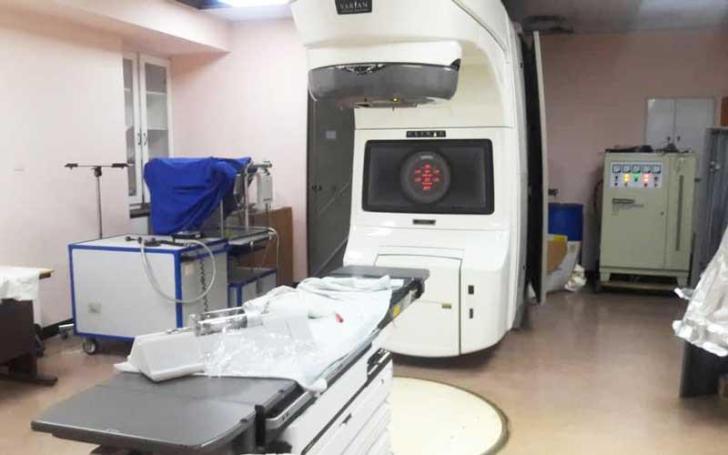News / National
'Influx of herbalists hindering cancer treatment'
19 May 2024 at 09:24hrs |
0 Views

Nothando Mutizira, head of oncology at Parirenyatwa Group of Hospitals, has raised concerns about the increasing reliance on herbalists, which she believes is hindering successful cancer treatment outcomes. Mutizira highlighted that many cancer patients delay seeking professional medical treatment, opting for herbal remedies first, leading to late-stage presentations.
Addressing the parliamentary Portfolio Committee on Health during a fact-finding visit on Tuesday, Mutizira noted, "Unfortunately, 80 percent of our patients present with stage 3-4 disease. Once patients present with advanced disease, the cure rate and success stories are much lower. We do have some cancers detected at an early stage, about 20 percent, and these cases see much better survival rates. However, most patients come very late due to a lack of awareness and the current trend of using herbal medicines."
Mutizira explained that the delay in seeking medical attention often results in cancer progression, making it harder to treat effectively. She also reported a significant increase in cancer patients, with the country's sole radiotherapy center now attending to over 150 patients daily, despite the radiotherapy machines being down. Currently, the center offers chemotherapy and brachytherapy for cervical cancer, but space and resources are becoming increasingly constrained.
In contrast, the haematology department at Parirenyatwa Hospital, led by specialist hematologist Moses Chatambudza, shows a more optimistic outcome. Chatambudza reported a 40-50 percent success rate in curative therapy for patients with blood, bone marrow, and lymphatic system disorders, even those presenting at advanced stages.
"Our success rate means about half of these patients return home cured, but we aim to increase this to 80-90 percent, especially if we can provide chemotherapy, blood products, and establish bone marrow services here," he said.
This would also eliminate the need for patients to travel to India for such treatments.
Despite the high patient turnout, Parirenyatwa cannot offer mammography for breast cancer independently, as its machine has been out of service for over 15 years. Currently, this service is provided with assistance from their partner, Angel of Hope. Delayed or canceled cases are exacerbating the advancement and spread of cancers while patients await treatment.
Addressing the parliamentary Portfolio Committee on Health during a fact-finding visit on Tuesday, Mutizira noted, "Unfortunately, 80 percent of our patients present with stage 3-4 disease. Once patients present with advanced disease, the cure rate and success stories are much lower. We do have some cancers detected at an early stage, about 20 percent, and these cases see much better survival rates. However, most patients come very late due to a lack of awareness and the current trend of using herbal medicines."
Mutizira explained that the delay in seeking medical attention often results in cancer progression, making it harder to treat effectively. She also reported a significant increase in cancer patients, with the country's sole radiotherapy center now attending to over 150 patients daily, despite the radiotherapy machines being down. Currently, the center offers chemotherapy and brachytherapy for cervical cancer, but space and resources are becoming increasingly constrained.
In contrast, the haematology department at Parirenyatwa Hospital, led by specialist hematologist Moses Chatambudza, shows a more optimistic outcome. Chatambudza reported a 40-50 percent success rate in curative therapy for patients with blood, bone marrow, and lymphatic system disorders, even those presenting at advanced stages.
"Our success rate means about half of these patients return home cured, but we aim to increase this to 80-90 percent, especially if we can provide chemotherapy, blood products, and establish bone marrow services here," he said.
This would also eliminate the need for patients to travel to India for such treatments.
Despite the high patient turnout, Parirenyatwa cannot offer mammography for breast cancer independently, as its machine has been out of service for over 15 years. Currently, this service is provided with assistance from their partner, Angel of Hope. Delayed or canceled cases are exacerbating the advancement and spread of cancers while patients await treatment.
Source - newzimbabwe
Join the discussion
Loading comments…

























